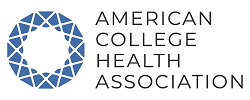Managing Fear and Anxiety Around the Coronavirus
Common Reactions
Please recognize that there can be a wide range of reactions and that over the next few days or weeks you may experience periods of:
- Anxiety, worry, panic
- Feeling helplessness
- Social withdrawal
- Anger
- Difficulty concentrating and sleeping
- Hyper-vigilance to your health and body
Ways to Manage Fears and Anxieties
Although Coronavirus is a health issue that is being taken very seriously by the campus and public health authorities worldwide, do not let your worry about this virus take control of your life. There are many simple and effective ways to manage your fears and anxieties. Many of them are essential for a healthy lifestyle. Try a few to improve your overall emotional and physical well-being.
Get the facts. Stay informed with the latest health and campus information or go a step further and check out the CDC webpage dedicated to the coronavirus.
Check your email. Updates specific to the campus are being sent to keep you informed.
Keep things in perspective. Media coverage can often be upsetting, so limit the amount of time you dedicate to listening and/or watching. Although you’ll want to keep informed-especially if you have loved ones in affected countries- remember to take a break from the news and focus on positive things in your life and things you have control over.
Be mindful of your assumptions about others. Someone who has a cough or fever does not necessarily have Coronavirus. Self-awareness is important in not stigmatizing others in our community.
Keep connected. Maintaining social networks can help maintain a sense of normalcy and provide valuable outlets for sharing feelings and relieving stress.
Reduce chance of spreading illness. As with any other contagious illness it is important that you exercise hygienic habits such as covering your mouth and nose with a tissue or sleeve (not your hands) when sneezing or coughing. Avoid contact with others who are sick and stay home if you are sick yourself.
Wash your hands. While it may seem rudimentary, washing your hands offers you the most protection from illness. Avoid touching your eyes, nose and mouth with your hands. Be sure to wash with soap and water for at least 20 seconds.
Seek additional help if needed. Individuals who feel an overwhelming worry or anxiety can seek additional professional mental health support. Student Health Services offers free counseling to students taking 7 or more credits.
Reach out. If you have a fever, sore throat, cough, or trouble breathing, call Student Health Services at 406-657-2153 to speak to a nurse. They will help you decide the next move if you are unsure.
Sources: Center, U. H. (n.d.). Managing Fears and Anxiety around Coronavirus.
University Health Services Tang Center. (n.d.). Managing Fears and Anxieties around Coronavirus. Berkeley, CA.

